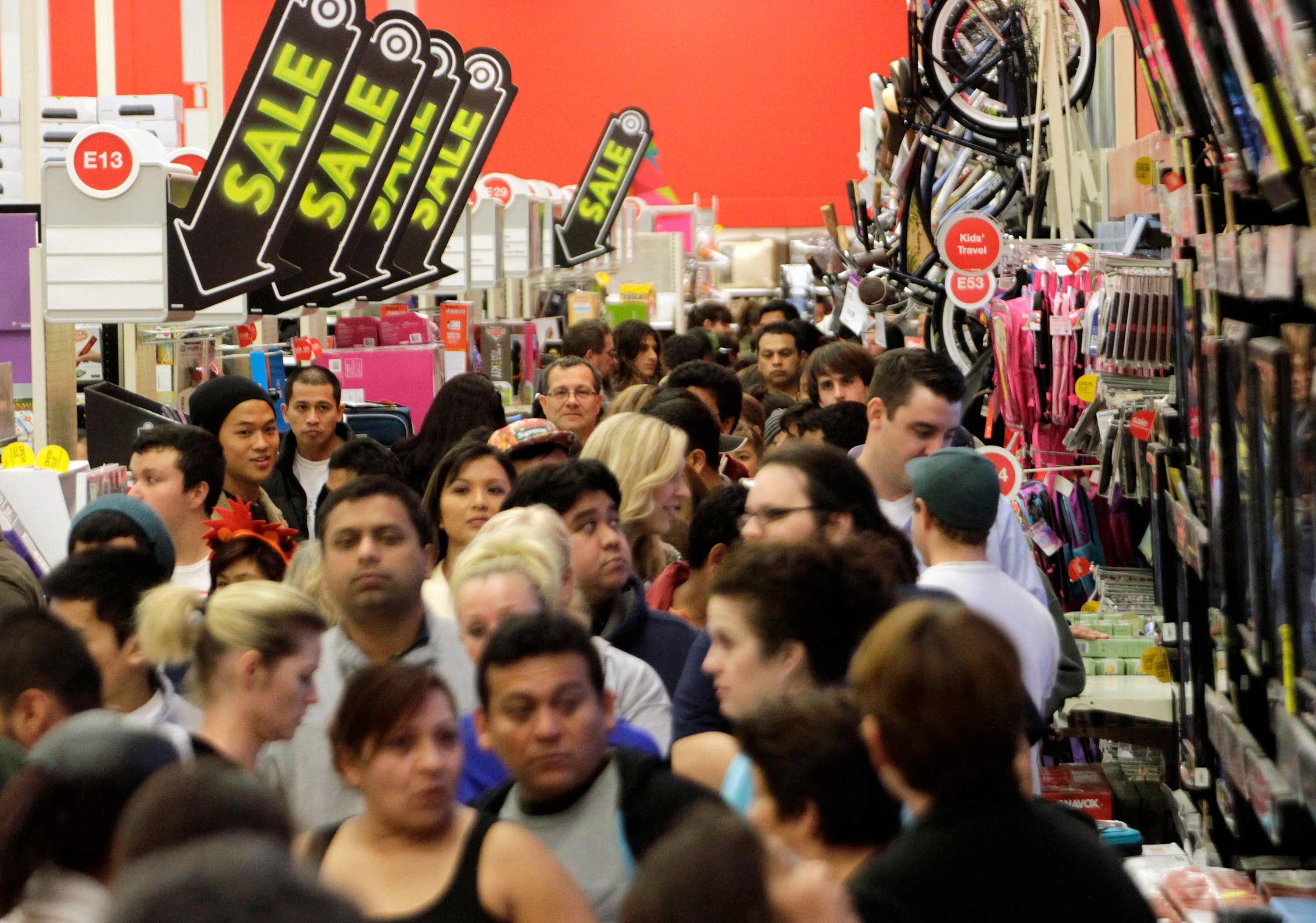Black Friday hits the UK, but what is it?
The celebration of consumerism kicks off tomorrow in the US and is bigger than ever, with British retailers planning to import it to the UK

It sounds sinister, and it's even caused deaths in the past, but why do Americans get so excited about Black Friday and how did it get started?
What is it?
Traditionally, Black Friday marks the beginning of the frenzied Christmas shopping season in the US. Although the actual date is different every year, it’s always the Friday immediately after Thanksgiving – this year, it will be November 29.
With retailers across the country slashing their prices, it’s the busiest shopping day of the year. Hordes of shoppers invade their favourite stores, desperate to make the most of the seemingly impossible deals.
Initially, the sales began early on the Friday, with most retailers opening their doors at around six in the morning. But as the years passed, retailers started to open earlier and earlier. First it was pushed back to five in the morning, then to four, and then to all the way back to Thanksgiving Day itself. In recent times, the concept of the Black Friday sales being confined to just one day has been all but abandoned.
Why is it called Black Friday?
The Philadelphia police force coined the term in the 1960s. They were referring to the same day, the Friday after Thanksgiving, which even back then saw a mass of ravenous shoppers descend upon the area. Pedestrians and motorists caused a great deal of congestion, much to the dismay of the police, which led to the “Black Friday” labelling.
An alternative reason relates to accounting. As would be expected, the onslaught of customers leads to a considerable hike in retailers’ revenue (over $59 billion was spent across the four-day weekend last year). It is therefore said that the period propels retailers to move “out of the red” and “into the black”. Thus, Black Friday.
Who gets involved?
Who doesn’t. According to the National Retail Federation, up to 140 million people across America will descend en masse on retailers during the weekend and, understandably, there are few shops who would be willing to miss out on such an opportunity. The marketing push from the big firms is monumental – many start the campaign weeks in advance.
The phenomenon is also spreading to the UK. Admittedly, the British version isn’t exactly a mirror image of its American counterpart, but there have been major retailers, including Asda and Amazon, looking to make Black Friday a fixture on the UK’s shopping calendar.
However, the excitement does occasionally boil over into something decidedly more sinister. In America, there have been outbreaks of violence in the past, including shootings, stabbings, fighting and trampling. In 2008, a Walmart employee was fatally injured in a stampede at a store in New York. It’s the most extreme case, but does show how the blind rush for bargains can have tragic consequences.
Join our commenting forum
Join thought-provoking conversations, follow other Independent readers and see their replies
Comments
Bookmark popover
Removed from bookmarks